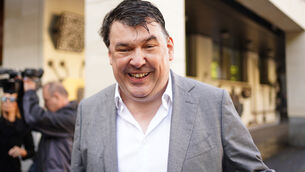Deal or no deal, Fianna Fáil will be sitting pretty when the music stops
Fianna Fáil wants to be the cherrypicker party, permanently in full-term government with an ever-changing bowl of cherries. A changing bowl of cherries is more invigorating to the big party than a period in opposition.
No, that “door is still open” isn’t a ploy. It means what it says.















